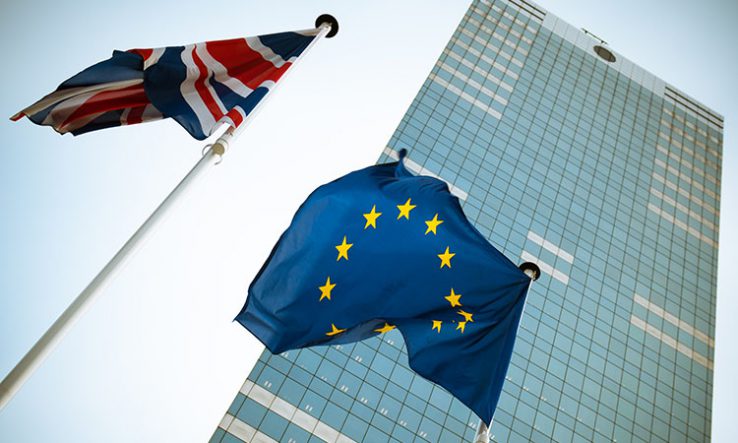
Science minister outlines contingency plans, should the UK fail to associate to Horizon Europe
The UK alternative to European Research Council grants will be “longer and better funded”, the science minister has said, as he set out long-awaited contingency plans if the country fails to associate to Horizon Europe.
George Freeman was speaking in Brussels during a “last round of talks” on UK association to the €95.5 billion (£80.5bn) R&D programme, which has been held up due to political disputes over the Northern Ireland protocol.
Addressing EU officials on 8 June, Freeman said that if UK-EU negotiations fail to make progress this summer “I’m going to have to move on”, giving researchers “some alternative solution”.
Freeman said contingency plans would comprise three pillars: world-class fellowships; stronger industry and innovation focus; and global research collaborations.
‘Global talent programme’
The first pillar, he explained, would be a “global talent programme with a series of flagship fellowships, but longer and better funded” than the EU’s prestigious ERC grants.
This would be a chance to “deal with all things the researchers have told us which aren’t quite perfect about the ERC’s scheme”, he said.
“We want to make them global fellowships that will bring people into the European research network and give European researchers a chance to go global through and with it,” he said, adding these would be “deep fellowships, wide fellowships across humanities and across convergent and interdisciplinary science”.
The fellowships would be backed by faster and easier visas, too, Freeman suggested.
“We’re going to put in fast-track visas,” he said. “We’re going to try and handhold families, make it easier for people and put a whole bunch of flexibilities in.”
Industry and global challenges pillars
The second pillar, which could be co-funded by industry, would put “innovation and industry into one” to tackle “the great industry challenges” in a “whole series of programmes that are liberated from the traditional bureaucracy that we are tackling ourselves already in the UK”, Freeman said.
Finally, the third pillar, would focus on global challenges such as climate change and antimicrobial resistance with a “major commitment to third-country participation” in Horizon Europe.
Crucially, the minister said, “we’re putting in place a major piece around infrastructure so that we can support the next generation of critical infrastructure that supports this research”.
As to the timeline, he said this year the focus would be on delivering the UK guarantee for underwriting Horizon Europe grants, and then “grow and develop those broader global partnerships” over the next two years.
Euratom and Copernicus
On Euratom nuclear programme, he said if the UK was blocked from the scheme, “we are in the process now in setting out what we will do”.
“We hope we can be members of Iter [the international nuclear fusion research facility]. And if not, we’ll have to look at developing our fusion plans with other partners internationally.”
On the Copernicus Earth-observation programme, he said: “We continue to be a €400 million contributor at the European Space Agency. And we are putting in place plans if we have to do Earth observation through the UK with other partnerships internationally.”
Elsewhere in his speech, Freeman pleaded with EU officials not to “use science to play hardball”.
“If you have to punish the UK, do it some other way,” he said. “This is self-defeating. It’ll damage you. It’ll damage global security. It’ll damage all of us in this room and many beyond.”